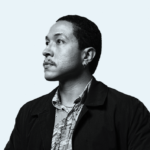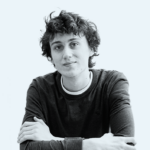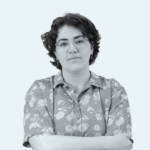We, Wageningen students, are trained to become knowledge workers (a ridiculous term for ‘person with a scientific education’) by assuming a critical position towards everything we have always assumed to be the truth. My homie René Descartes already knew this when he pondered his very existence in his Meditations on First Philosophy in 1641.
The (western) empirical scientific method, first introduced by Francis Bacon in Novum Organum in 1620, states that the knowledge worker starts by formulating a hypothesis and then conducts experiments to disprove the hypothesis. If these experiments are successful, the hypothesis must be changed. If not, the hypothesis remains as it is, bringing us closer to the truth.
Recently, I decided to conduct a scientific experiment on myself. My hypothesis was the following: There is no Dutch culture. The method I used was celebrating the carnival in Maastricht. It was a rather spontaneous and radical decision to conduct this dangerous experiment, but after diligently considering all ethical objections, I decided to go ahead. The day started on the train from Nijmegen to Maastricht. Once all of the commercial Brabant carnival tourists disembarked at Eindhoven Central Station, it was time for observations.*
Enjoying the grandeur Maastricht carnival has to offer in the name of science was thoroughly enjoyable
I immediately saw that all those present in Maastricht bathed in cultural wealth. The plastic banana suits and re-used Oktoberfest outfits in the party shops were substituted by creatively stitched together haute couture. Each outfit was unique, carefully considered and one-of-a-kind.
Because the train was overcrowded as a result of embarking and disembarking inebriated culture samplers, we aimed to stock up on the bare essentials humans need as soon as possible after leaving the train: food, hydration and alcohol. And, once we found a spot near the parade, tipsy from the two half-litres on a Sunday afternoon, enjoying the grandeur Maastricht carnival has to offer in the name of science was thoroughly enjoyable.
With regard to the slight or not-so-slight overconsumption of alcohol, I would like to stress the following: are there even public events during which one (or more) beers too many are not consumed? I would love to tell you more about the different stages I went through during this experiment, in addition to tripping over each other during a game of Twister, almost passing out from some snus on my gums, and the endless search for lost friends without a functioning internal compass. Sadly, my memory fails me.
The conclusion of the experiment: The hypothesis is disproved. During my fieldwork, I have gathered more than sufficient evidence to the contrary. Hence, I will consider Limburg an official province henceforth. We can learn a lot from them!
*For the purpose of this experiment, Limburg is considered to be part of the Netherlands.
Resource-student editor Felix Landsman (22) is a likely future graduate of Environmental Sciences and an aspiring adventurer. He is often looking for something.




